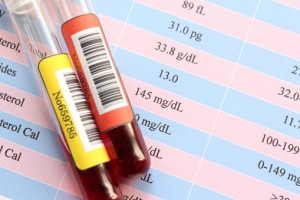Struggling with Hormones and Weight Loss
Copyright (c) 2014 LifeWorks Integrative health
Fat around the waistline is a big trouble that several Americans face. Actually, belly fat deposits is the most dangerous sort of fatty tissue. Excess weight around the midsection could raise your chances of establishing diabetes, cancer, cardiovascular disease and stroke. Not simply is belly fat deposits unpleasant, but it could be a crucial sign of a hormonal problem.
Belly fat could be a sign of a number of hormonal imbalances including:
A decrease in testosterone levels in men.
Elevated testosterone or DHEA levels in women.
Estrogen dominance in both genders.
Adrenal dysfunction in both genders.
In order to lessen belly fat deposits, one need to engage in regular workout, consume a healthy diet, get plenty of sleep and take care of any hormonal problems that could be related to your weight gain.
Bodily hormones and weight gain may be the result of high androgens (likewise referred to as DHEA and testosterone) in women. This could often be an early indicator that a lady is establishing insulin resistance or has already established the hormone insulin resistance. When the body struggles with sugar metabolic process, testosterone and DHEA levels become raised. With the altitude of testosterone and DHEA, numerous females begin to develop male pattern obesity. Male pattern excessive weight describes the apple-shaped number that several women struggle with as they become older.
More youthful women, specifically those taking care of PCOS, are also having problem with excessive weight around the waistline. This is particularly risky due to the fact that it can enhance the danger of a girl establishing diabetes or heart disease.
Abdominal fatty tissue cells can increase the aromatization of testosterone into estrogen. When estrogen degrees rise, the probability of maintaining a lot more fat around the abdominal region becomes even more of a reality. Hormones and weight gain can make a vicious circle of blood sugar level dysregulation as well hormone discrepancies.
Male testosterone levels begin to come to be reduced as the outcome of tension, aging and obesity. In today's globe, guys are experiencing a decrease in testosterone degrees considerably previously in life than ever before. Lower testosterone degrees are the result of the hormone insulin resistance and also a boosted risk of metabolic disorder and diabetic issues.
Research conducted at the University of Washington indicates that men with lower testosterone levels are much more likely to develop abdominal fat. Researchers also found that replacing lost testosterone can help to aid in the fat loss process.Something else to consider when it comes to hormones and weight gain is cortisol. Also referred to as the stress hormone, cortisol imbalances can lead to an increase in abdominal fat. Researchers at Yale University found that even slim women with high cortisol levels were likely to still experience fat around the midsection. Cortisol is also linked to an increase in the storage of abdominal fat. Insufficient cortisol levels can also cause cravings, fatigue and poor thyroid function.
Struggling with hormones and weight loss can be a challenge. Diet and exercise are often your best defense against weight gain and can help you to lose unwanted weight. However, it is important to remember that hormonal imbalances can make weight loss challenging even when you feel you are doing everything right. Testing for hormonal imbalances can beneficial to help ensure successful weight loss.
-
Fat Binder Pills - Eat What You Want And Yet Stay Slim
What would be your reaction if someone told you that you can eat the F
-
Learning How To Lose Weight The Safe Way
There is more to losing weight than improving your looks. Weight
-
Over 110 Cardio Workout Ideas
-
How To Eat Out And Lose Weight
Diners have become more health-conscious the last few years, and now w
-
Workouts To Lose Stomach Fat Fast
What are the best workouts to lose stomach fat fast? The answer to
-
Is Food a Cure for All That Ails You?
We are so blessed to live in an environment where food, a basic ele
- DON'T MISS
- The Who, What, When, Where, How And Why Of Weight Loss
- The NeuroScience Of Losing The Weight You Hate
- Disadvantages of Weight Loss Supplements
- Does Increasing Serotonin help with weight loss?
- Finally, A Weight Loss Program That Works
- Eat Healthy And Lose Weight Part 2
- Are You Curious About the Way Proper Diet Enhances Weight Loss?
- Dr. Oz Show – Can You Think Yourself Skinny?
- Introduction To Low Carb Dieting
- Eating a Clean Diet for Permanent Weight Loss




